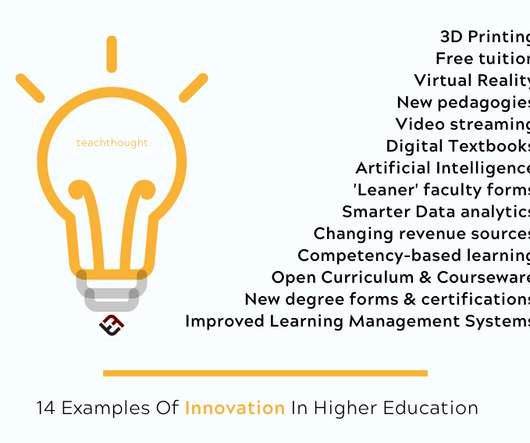14 Examples Of Innovation In Higher Education
TeachThought - Learn better.
MAY 12, 2020
Competency-Based Learning. Competency-Based Education is something I’m hearing more and more about, which is neither bad nor good, but worth understanding more carefully. MOOCs are great ideas, but assessment and feedback loops and certification are among the many issues holding them back.



















Let's personalize your content